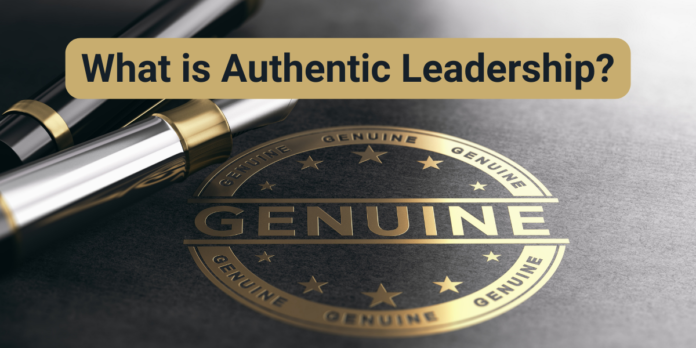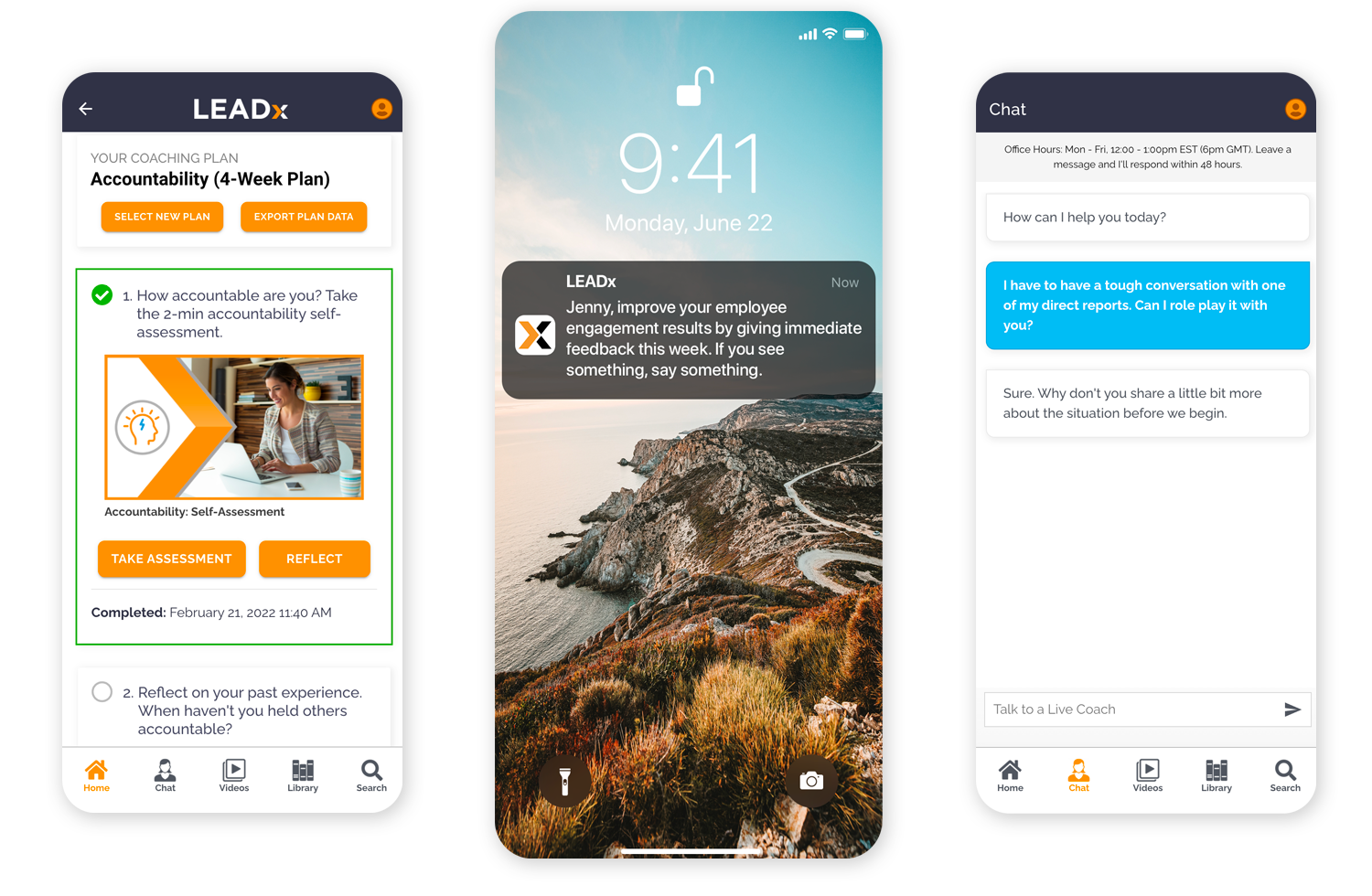
What is Authentic Leadership?
There are a myriad of leadership styles; each with strengths and weaknesses. Many new leaders believe that their employees want them to be a portrait of unwavering strength and fortitude; to have all the answers and never show weakness. But in actuality, research shows employees want the exact opposite.
An emerging leadership theory holds that the best leadership style is one that is unique to who the leader is as a person. “Be yourself” isn’t revolutionary advice; nor is it anything new. The famous quote, “to thine own self be true,” came from a character in Shakespeare’s Hamlet, which premiered over 400 years ago. But the idea of applying authenticity to leadership is relatively new. Authentic Leadership Theory is only just now entering its renaissance after Bill George first introduced the concept in 2003. But a growing body of research has found that George was onto something. A study in the Leadership & Organization Development Journal found employees' perception of authentic leadership is the strongest predictor of job satisfaction.
In the words of Brene Brown, “If you think dealing with issues like worthiness and authenticity and vulnerability are not worthwhile because there are more pressing issues, like the bottom line or attendance or standardized test scores, you are sadly, sadly mistaken.”
Authentic Leadership Theory Explained
Authentic leadership theory holds that, in order to be effective, leaders must be authentic to who they are as people and not try to take on a different personality in the name of leadership. Sure, there are skills that all leaders should master—like communication, delegation, and giving feedback. But the theory holds that leaders are actually most effective when they don’t try to hide or change who they are deep down. Research backs this up—and not only for leaders.
It's been proven that “being yourself” has all sorts of benefits. Authenticity is known to contribute to both overall well-being and engagement. One study on the benefits of authenticity at work found that 80% of self-reported authentic employees believe authenticity improves the workplace. Further, employees believe authenticity leads to:
- Improved relationships with coworkers
- More trust
- Higher levels of productivity
- A positive work environment
Employees wanting to show their full, authentic selves at work is a growing trend that companies are honoring with measures targeting inclusion and belonging. But without psychological safety—or the degree to which someone feels they can be authentic without fear of negative consequences—these measures can only go so far. In order to cultivate psychological safety, authenticity must start at the top—with authentic leadership.
Bill George on Authentic Leadership
Former Medtronic CEO and Harvard Business School professor Bill George is known as the father of authentic leadership. His book, Authentic Leadership: Rediscovering the Secrets to Creating Lasting Value, demonstrates that authentic leaders of mission-driven companies will create far greater shareholder value than financially oriented companies. As George wrote in a Harvard Business School Working Knowledge article, “the book proposed a new kind of leader, whose character was the ingredient that mattered most—more than characteristics or style. [It] also challenged older models of leadership, including the ‘great man theory’ and competency-based leadership models. Previous generations of business people spent more time trying to “market” themselves as leaders, rather than undertaking the transformative work that leadership development requires.”
George himself had an impressive leadership career. During his 13 years as a Medtronic senior leader (he was COO before becoming CEO), annual revenue increased an average of 18% and earnings increased 22%. George has also served on the boards of companies like Goldman Sachs, ExxonMobil, Novartis, Target Corporation, and the World Economic Forum USA, and has won a myriad of leadership awards for his work.
Authentic Leadership Characteristics
Bill George’s Authentic Leadership Model holds that authentic leaders display five distinct characteristics. He hints at them in a 2012 interview with Triple Crown Leadership, where the interviewer asked George to describe great leadership:
Great leadership involves a vision of what can be, the courage to take it on, and the ability to bring people together and align them around that vision and mission. It takes the capacity to practice those values–your values and the organization’s values–every day. It needs discipline at that practice. You can’t say one thing and do another. Great leaders know how to empower other people to step up and lead. They don’t exert power over other leaders. That’s an old-fashioned notion. They know how to empower other people at all levels to step up and lead.
George believes authentic leaders need the following characteristics to be successful:
- Purpose – Authentic leaders are deeply attuned to their “reason for being.” George describes purpose as “passions in action.” Purpose connects passion with an outcome bigger than oneself. The most effective, authentic leaders have a personal purpose that aligns with their organization’s mission. That’s part of what made George such an effective leader—he fully embraced Medtronic’s mission and was vocal about it.
- Values – Authentic leaders have a set of personal values that serve as guideposts for everything they do. As such, their values shine through in their behavior, especially when under pressure. A leader showing up authentically is contingent on “walking their talk”—otherwise, they will lose trust with employees. George himself writes that “the values of authentic leaders are shaped by their personal beliefs and developed through introspection, consultation with others, and years of experience.”
- Relationships – Authentic leaders build authentic relationships—with their employees and other leaders. Genuine relationships are predicated on both parties showing up authentically and sharing facts and stories about themselves. Authentic leaders crave genuine connection, which often means taking the first step in being vulnerable with others. Deep connections and trust are built on vulnerability, and authentic leaders know this. They are empathetic listeners, good communicators, and take an interest in people’s lives outside of work.
- Self-discipline – Authentic leaders are focused and disciplined in the face of their goals. They don’t give up when setbacks arise and cultivate habits for resilience and mental strength. In this way, authentic leaders understand the importance of taking care of themselves—getting enough sleep, exercising, and eating right—in order to be at their best.
- Heart – Authentic leaders are compassionate. Much like servant leaders, they strive to empower others and meet their needs. According to George, authentic leaders bring out the best in people through active listening and treating them as equals.
Common Misconceptions About Authentic Leadership
Like with many emerging leadership theories, there are several misconceptions about what it means to be an authentic leader.
- Misconception 1: Authentic leaders say whatever is on their minds. Authentic leaders do indeed have a filter and know when to use it. George puts it this way: Authentic leaders monitor their words and behaviors carefully to be attuned to their audiences and to enroll their colleagues and teammates. They do so because they are sensitive to the impact their words and actions have on others, not because they are “messaging” the right talking points.
- Misconception 2: Authentic leaders are oversharers. It is true that there are certain aspects of our lives that are better left unsaid—like our bathroom habits and childhood traumas, for example. While authentic leaders are vulnerable and honest, they are able to discern what to share with whom, and when. As George mentioned above, authentic leaders are sensitive to the impact they have on people, and will (hopefully) have cultivated the self-awareness necessary to know what makes people feel uncomfortable.
- Misconception 3: Authentic leaders are “soft.” With the focus on genuine care and compassion, it’s easy to see why some would perceive authentic leaders as too easy-going. This is a reflection of a false dichotomy that holds that a leader cannot both care deeply about people and achieve results. Brene Brown talks about having a “strong back and open front,” which illustrates the posture many authentic leaders take. The strong back refers to grit and driving hard to achieve goals, while the “soft front” illustrates an open heart that cares for others. Authentic leaders are both deeply relational and goal-oriented.
How to Discover Your Authentic Leadership Style
While not explicitly stated in George’s five authentic leadership characteristics, the common threads of self-awareness and a growth mindset are what bind them all together. A leader cannot be true to herself if she doesn’t actually know herself, and having the vulnerability to say, “I don’t have all the answers” requires an orientation toward constant learning and improvement.
In his book, Lead like a Human, author Adam Weber describes practices leaders can implement to develop self-awareness including self-reflection, personality assessments, and “centering” routines and rituals.
But, he writes, at the end of the day, “there is no silver bullet to becoming an ‘authentic leader.’ It’s a combination of doing the work to become an ‘authentic person’ and applying solid leadership principles and tactics.”
You can learn more about the foundational leadership skills necessary to be an authentic leader on the mobile-first LEADx platform, the first to combine behavioral science, artificial intelligence, and expert insights to dramatically improve leadership behaviors, employee engagement, and productivity. In addition to video courses, summaries of best-selling leadership books, webinars, and podcast episodes, LEADx also comes with DISC and Growth Mindset personality quizzes and micro-coaching plans on topics like giving feedback, delegating effectively, one-on-one meetings, and coaching.






